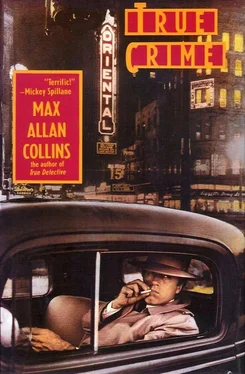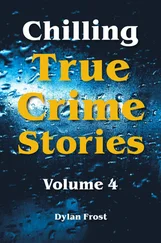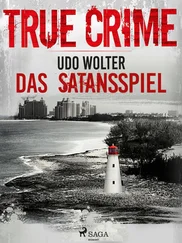Doc said, “Fine and dandy, if the snatch goes smooth. What if it’s queered at the scene? What if some fed recognizes somebody, or wants to look at ID, or they send a different car? What if the shit hits the fan, right there in front of the Banker’s Building?”
Karpis just smiled patiently through all this. He said, “We got all that covered. There’ll be a backup car with extra firepower parked across the way, in front of the Edison Building — on Adams, kiddy-corner from the Banker’s Building. If shooting starts, they cover the escape by opening fire from another direction. And if the snatch goes smooth, they cruise down Adams — dumping tacks behind ’em like bread crumbs, making flat tires and jamming traffic. At LaSalle, the backup car’ll head north, dropping more tacks, to throw the laws off the trail — and ditch their car and switch in an alley off Franklin and Monroe to a new car. And drive away.”
Doc was smirking, skeptical as hell. “All of this in the Loop. Creepy, you’re dreaming.”
Karpis said, “No, Doc — you’re sleeping. Think. Between six and seven, the LaSalle Street district is deader than a doornail. The market shuts down at three — everybody’ll be out by six, easy. On our way in, both the backup and the Hudson’ll take different routes — and if on the way in we see a lot of cops or anything else out of the ordinary, well fold it up. Either car’ll have the right to fold it — if the Hudson gets there and the backup isn’t in position, that means they chose to fold. If the Hudson wants to fold, they just drive on by the Banker’s Building, east on Adams, without stopping.”
Then Karpis went through the escape route — the one that would be taken should the job go sour. The Hudson would turn hard down Quincy, and take a very tight turn down the alley, Rookery Court. Then would pull west on Adams, and once there, if traffic’s heavy, use the siren, crossing LaSalle and Wells, going under the El. After another block on Adams, the Hudson would take a left and go south on Franklin Street. If the siren had been in use, it would be turned off here. Two short blocks later, the Hudson would cut across Jackson and dodge into a narrow, barely noticeable alley behind the fifteen-story building on the northeast corner. This alley led into a system of several alleys, the main, widest one of which was where the loading dock was, with the extra car.
“It’s a two-bay loading dock,” Karpis said, “nice and deep — a car can enter it and not stick out in the alley at all.”
Whether the snatch went smooth or soured, the Hudson would end up here, pulling into the bay next to the second car; everybody would tumble out, putting Hoover (gagged by now) in the trunk of the second car. Of the three men who picked up Hoover, two would be in Chicago police uniforms; they would quickly strip out of those with street clothes underneath — and drive out of the bay and onto Van Buren, going west.
Doc was starting to look less skeptical; but he still asked, “What about real cops? Two to a block, in the Loop, you know.”
Karpis shrugged like Jack Benny. “Supper hour, Doc. Streets are good and empty of uniforms ’tween six and seven.”
Doc nodded slowly. Then said, “Streetcars? Traffic?”
“Both’ll be slow at that hour, that part of the Loop.”
Nelson was nodding, too, saying, “And what traffic there is’ll mostly be people coming into the Loop, for dinner and an evening’s fun ‘n’ games — not going out , like we’d be doing.”
Doc said, “But State and Wabash and the streets around there will be hopping.”
Karpis shrugged again. “That’s in our favor. If an alarm is sounded, the cops’ll have to break through that traffic to get to us. By the time they reach the Banker’s Building at the southwest tip of the Loop, we’ll’ve switched cars.”
Doc thought about that.
Karpis went on. “The Hudson’ll only be on the street for about four blocks, remember. A few minutes at most.”
Karpis then went into the deployment of men: three in the fake state attorney’s car; two in the backup car; one at the loading dock waiting with the second car; another to disable the real state attorney’s car at the city garage near City Hall.
And me — I’d be baby-sitting the ladies, in Ma Barker’s apartment on Pine Grove Avenue. I might be there for weeks — as long as it took for Hoover to be ransomed, plus some cooling-off time. The men didn’t want to hook back up with their ladies till they were sure the Hoover grab was a success. Nobody wanted his girl serving time on this one.
Also, the guy who’d disable the state attorney’s car had a bigger job than just kicking the nail in the toe of his shoe into the tire on a Hudson. First he’d have to go up a fire escape to get into the garage (which was serviced by carhops); then he’d have to hang around on the street and watch the state attorney’s real delivery boys go after their car and, when it turned out they were delayed by a flat tire, try to delay whoever it was from calling the office.
“That’s your job, Chase,” Karpis told Nelson’s lapdog John Paul.
Chase nodded.
“Just sap him or something,” Nelson said, offhandedly. “Don’t kill him or nothin’.”
Karpis underscored that. “ No killing — if you can help it. We’re going to be hot enough . If they don’t believe they’ll get him back alive, they won’t pay the freight. We leave a trail of bodies, they’ll figure us to kill him for sure. Got that?”
Heads nodded.
“Now, we got a problem in possibly being recognized,” Karpis said. “I don’t think it’s much of one, ’cause Hoover and his people aren’t going to be looking for the likes of us to be picking him up for supper. But it’s a problem. So me and Chock and Chock’s pal Sullivan will do the pickup in the Hudson.”
Doc said, “Chock’s picture’s been plastered to hell and gone.”
“I know — but he’ll be in a police uniform, driving; he’s a big guy — he’ll look like your typical well-fed Chicago cop — won’t you, Chock?”
“Damn tootin’,” Floyd laughed.
Karpis pointed to himself with a thumb. “My face-lift and glasses and such makes me a good candidate for not being made. And Chock’s friend Sullivan doesn’t have a famous puss like some of the rest of us; he’ll be the other cop, the one in back. I’ll be in a nice suit and look like a state attorney’s assistant. And then the three of us’ll give J. Edgar a ride.”
Nelson pointed toward the map and said, “I want the backup car, parked on Adams there.”
Karpis nodded. “My thoughts exactly. You and Freddie.”
Freddie grinned, goldly, and nodded. “I’ll be wheel man.”
“Doc,” Karpis said, “you got the dock. The loading dock. All you got to do is baby-sit the switch car.”
Doc didn’t seem thrilled about it, but he nodded.
Karpis said, “Chock and Sullivan and me’ll baby-sit Mr. Hoover, incidentally. We got a place waitin’. Nobody else in this room needs know where that place is. Just rest assured it’s safe. Once the ransom’s delivered, I’ll find everybody and distribute the wealth.”
As an outsider to the ways of the outlaw, I was surprised to find that no one objected to this arrangement; the thought of a double cross never arose. They trusted each other. Or at least they trusted Karpis.
Then Doc nodded toward me. “What about Lawrence?”
“He baby-sits the girls.”
There was some laughter.
“Nice work if you can get it!” Floyd hooted, still out of view.
Even Doc smiled. “Where do I sign up to get my harem?” he said.
Nelson didn’t find it funny. “You got a job to do, Lawrence — do it! And no funny business.”
Читать дальше












